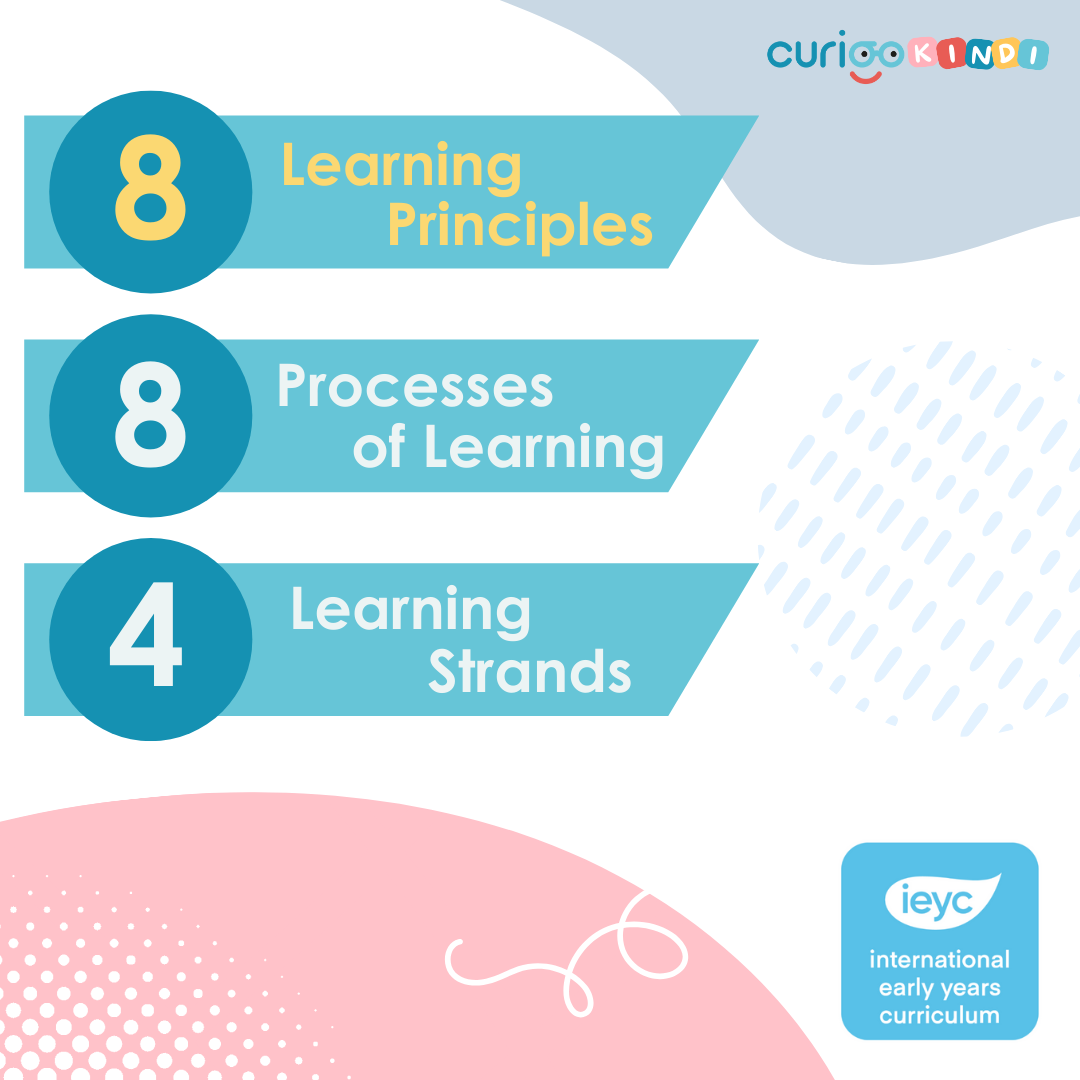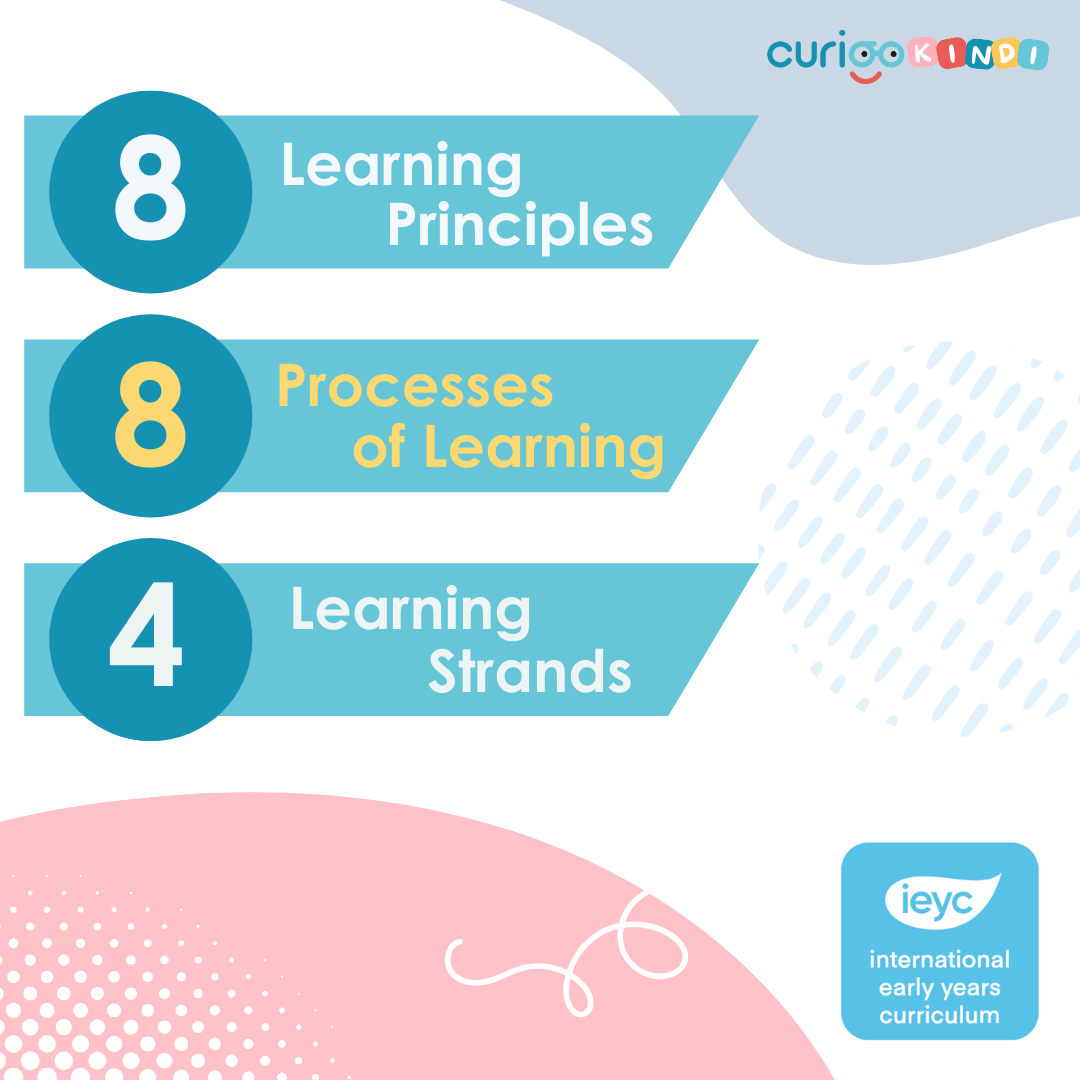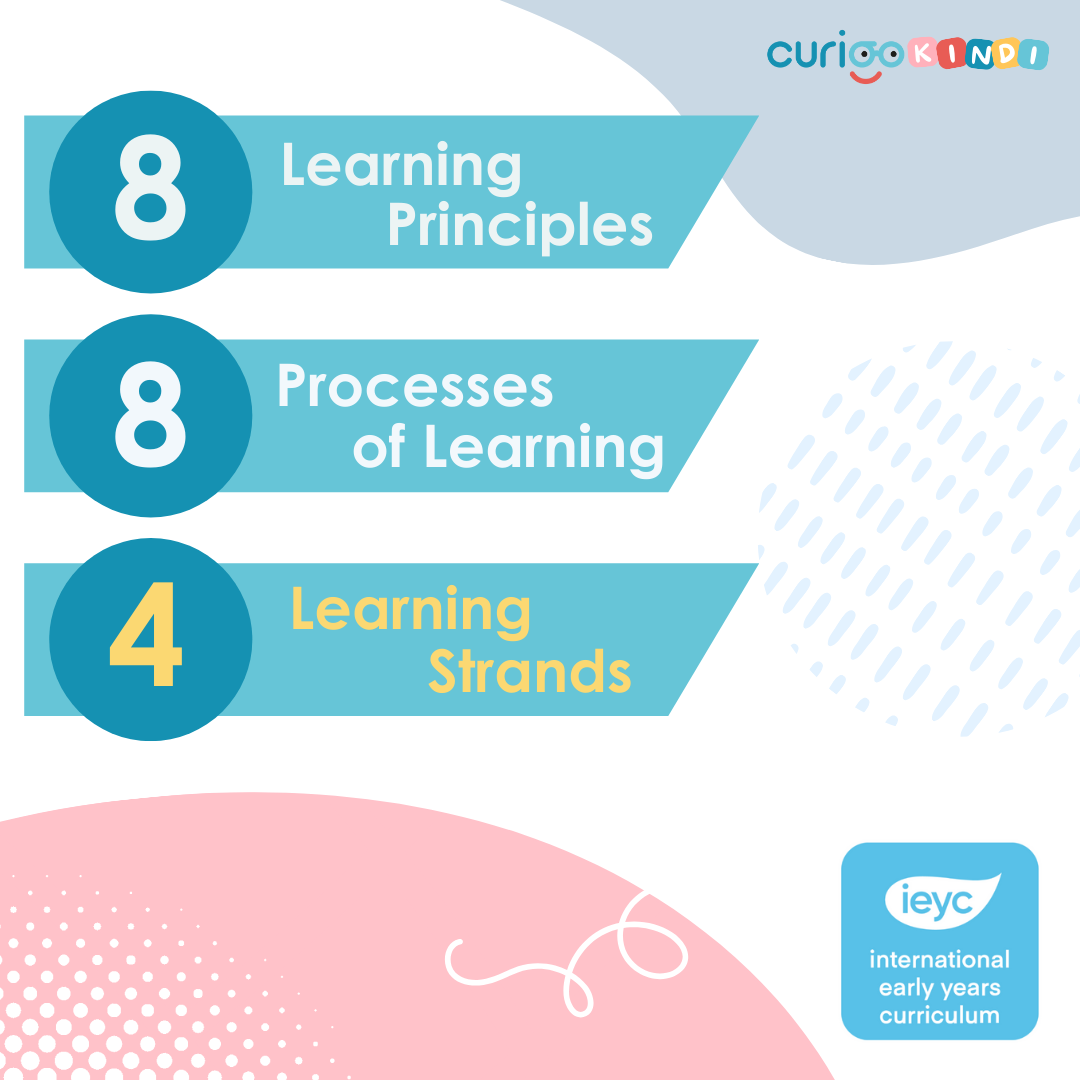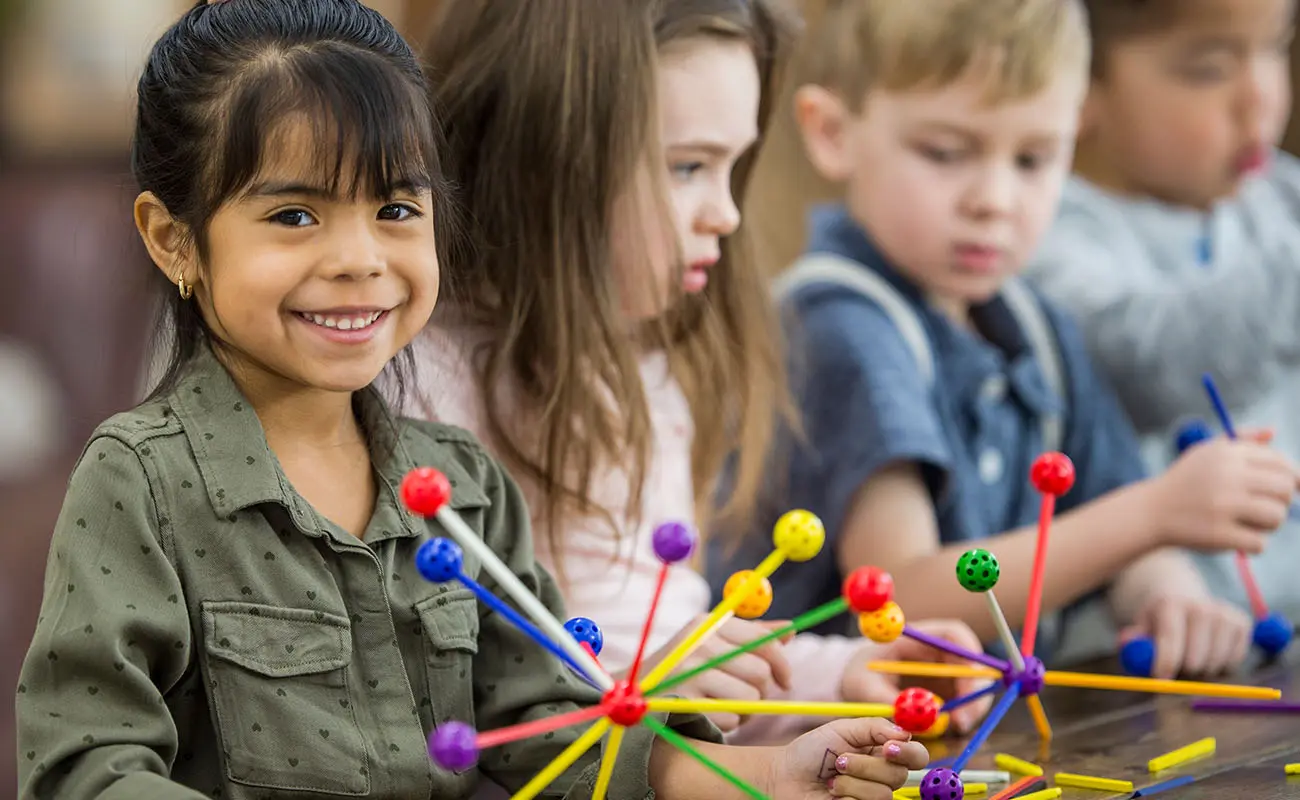Preschool
Part of education is learning. And what drives learning is curiosity and collaboration
Sir Ken Robinson
About
the preschool care program at CURIOO Kindi
Early childhood development is critically important. The IEYC believes that children are not passive receptors, but are born naturally curious and ready to explore the world, constructing knowledge and developing new skills through experiences and interactions with others. At CURIOO, our experienced teachers and staff help facilitate this period of learning, with the foundation of a British education.
The IEYC has been designed so that teacher scaffolded and differentiated learning activities help spark children’s imagination, enabling interests and enquiry to flourish through contextualised learning. This type of enquiry provides greater opportunities for children to learn independently and interdependently, opening up multiple possibilities for personal, social and emotional development.
If you’re ready for more information, we’d love for you to come visit us
Learning Principal
The IEYC has eight Learning Principles, each conveying a belief considered essential to
children’s learning and development. The Learning Principles form the foundation of all IEYC policy and practice. The eight Learning Principles are:
- The earliest years of life are important in their own right.
- Children should be supported to learn and develop at their own unique pace.
- Play is an essential aspect of all children’s learning and development.
- Learning happens when developmentally-appropriate teacher-scaffolded and child initiated experiences harness children’s natural curiosity in an enabling environment.
- Independent and interdependent learning experiences create a context for personal development and are the foundation of international mindedness.
- Knowledge and skills development lead to an increasing sense of understanding when children are provided with opportunities to explore and express their ideas in multiple ways.
- On-going assessment, in the form of evaluation and reflection, is effective when it involves a learning-link with the home.
- Learning should be motivating, engaging and fun, opening up a world of wonder for children where personal interests can flourish.


Processes of Learning
The IEYC has a unique Process of Learning, providing a robust implementation structure. Each element of the Process of Learning is linked to the eight Learning Principles, ensuring the IEYC beliefs about children’s learning and development are connected to all practices.
Process of Learning captures children’s natural curiosity as a starting point and, within an
enabling environment, balances child-initiated and teacher-scaffolded provision.
There are eight key elements to the Process of Learning.
- The Child: the unique 2-5-year-old with distinctive learning and development needs;
- The Entry Point: the exciting and memorable event that launches each IEYC unit of learning and encourages children to think and become motivated about the experiences that will follow;
- Capturing Curiosity: the process of finding out what children already know about a theme and what they are curious to learn about. Children’s interests act as a catalyst to supportchild-initiated enquiry;
- Enable the Environment: the process of planning and developing relevant indoor and outdoor learning spaces to create the positive social and emotional climate required for enquiry and learning to take place
- The Learning-Link / Reflecting and Evaluating: the process of on-going assessment, in the form of evaluation and reflection involving establishing a learning-link partnership between the home and the setting.
- The Big Picture: the process of providing children and family with some context to an IEYC unit of learning so that connections between previous and new learning can be made;
- Explore and Express: the process when teacher-scaffolded IEYC learning activities and child-initiated exploration are developed through individual and collaborative experiences, and the creative opportunities provided to help children demonstrate, share and consider what they have engaged in and learned about;
- The Exit Point: the process at the end of an IEYC unit of learning that helps children reflect, share and celebrate what they have learned;
Learning Strands
The IEYC has a set of four Learning Strands underpinning all learning and development.
Each Learning Strand describes what children will experience and learn about through contextualised activities woven into IEYC units of learning.
Each IEYC unit of learning is designed around a central theme, holistically linking all Learning Strands to relevant and engaging activities that can be adapted and extended to meet individual needs. The Learning Strands are used to guide teachers planning so that there is rigour to what and how children learn. The four Learning Strands are:
Each Learning Strand describes what children will experience and learn about through contextualised activities woven into IEYC units of learning.
Each IEYC unit of learning is designed around a central theme, holistically linking all Learning Strands to relevant and engaging activities that can be adapted and extended to meet individual needs. The Learning Strands are used to guide teachers planning so that there is rigour to what and how children learn. The four Learning Strands are:
- Independence and Interdependence: focusing on personal, social and emotional development and linked to the IEYC Personal Goals and an International Dimension
- Communicating: with seven sub-categories focusing on a broad range of communication skills including language development, early literacy, early mathematics, ICT and computing, expressive arts and creativity;
- Enquiring: focusing on developing the skills of enquiry through exploring people and the world;
- Healthy Living and Physical Well-Bein

Across ages



